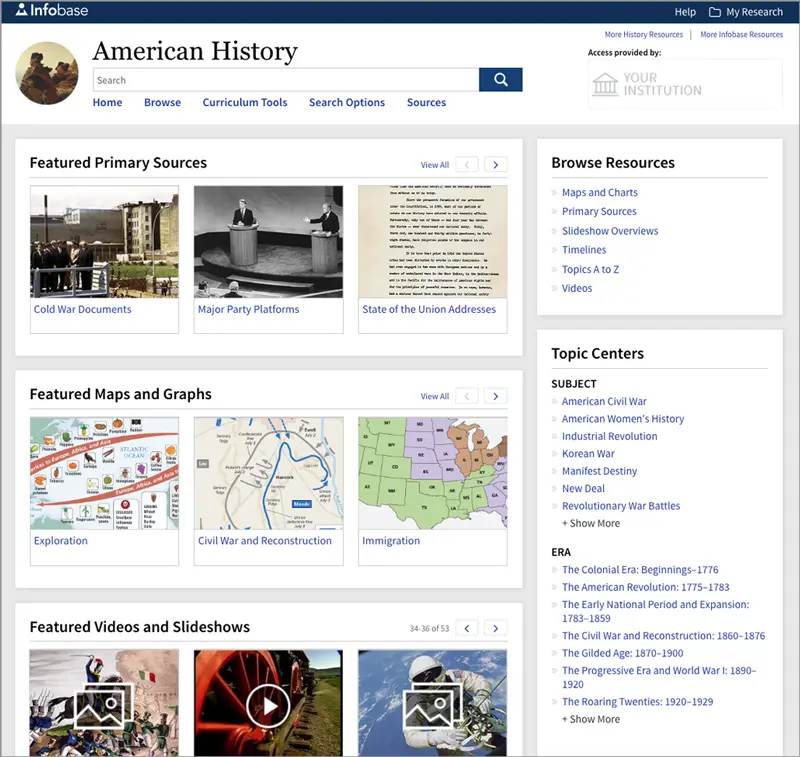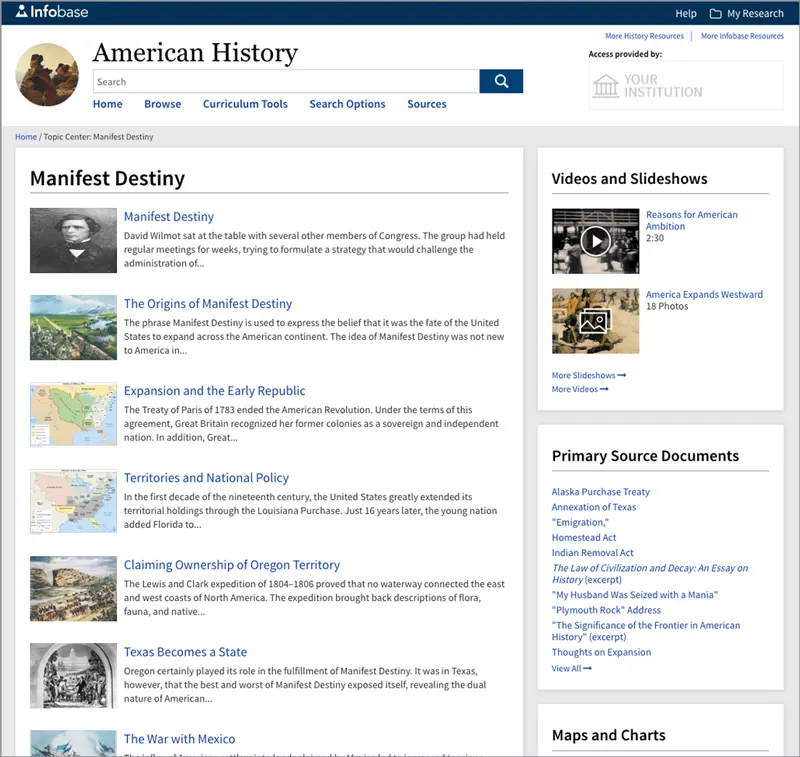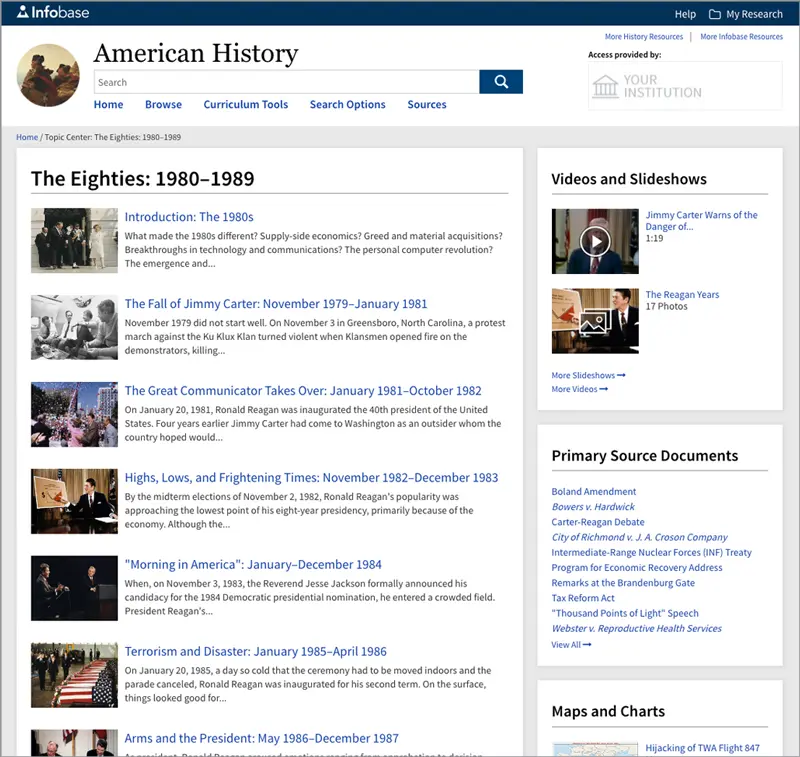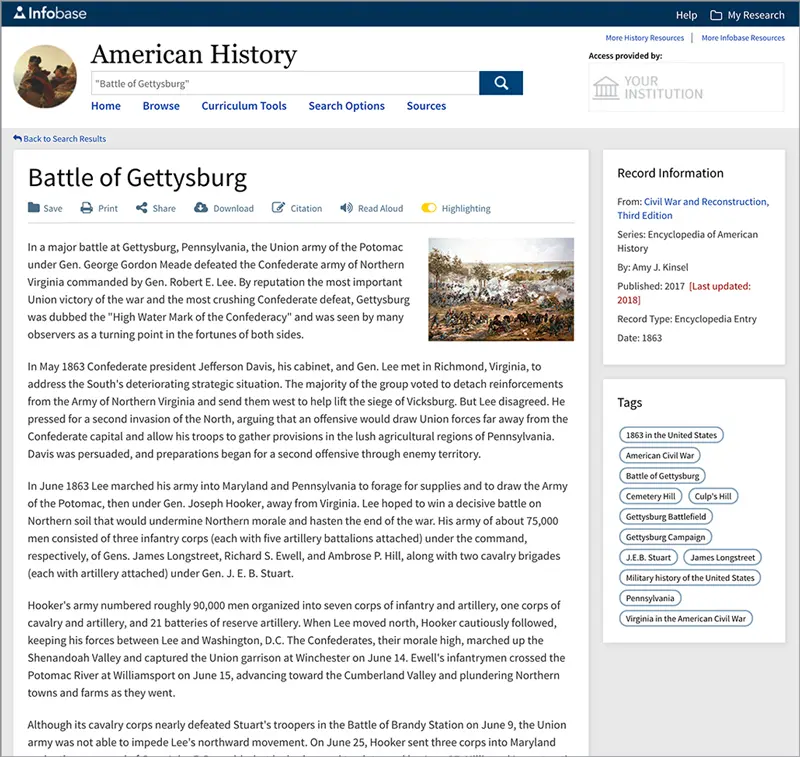- Who We Serve
- Solutions
- Products
-
-
infobase trial
Explore the essential online curriculum-based resources for instructors and students offered by Infobase.
Easily integrate courseware, content, and tools seamlessly into your learning management systems for efficient researching and course creation.
-
PRODUCTS
BY AUDIENCE
BY MEDIA
-
FREE RESOURCE TOOLKITs
FEATURED CASE STUDY
Bringing Creativity to Information Literacy: Show Students That “Research Is Everywhere”
-
-
- Learning Center
-
-
infobase trial
Essential online curriculum-based resources for instructors and students.
Easily integrate courseware, content, and tools seamlessly into your learning management systems for efficient researching and course creation.
-
LEARNING CENTER
ALL RESOURCES
BY AUDIENCE
BY MEDIA
-
FREE RESOURCE TOOLKITs
FEATURED CASE STUDY
Bringing Creativity to Information Literacy: Show Students That “Research Is Everywhere”
-
-
- Platforms
- Support
- Who We Serve
- Solutions
- Products
-
-
infobase trial
Explore the essential online curriculum-based resources for instructors and students offered by Infobase.
Easily integrate courseware, content, and tools seamlessly into your learning management systems for efficient researching and course creation.
-
PRODUCTS
BY AUDIENCE
BY MEDIA
-
FREE RESOURCE TOOLKITs
FEATURED CASE STUDY
Bringing Creativity to Information Literacy: Show Students That “Research Is Everywhere”
-
-
- Learning Center
-
-
infobase trial
Essential online curriculum-based resources for instructors and students.
Easily integrate courseware, content, and tools seamlessly into your learning management systems for efficient researching and course creation.
-
LEARNING CENTER
ALL RESOURCES
BY AUDIENCE
BY MEDIA
-
FREE RESOURCE TOOLKITs
FEATURED CASE STUDY
Bringing Creativity to Information Literacy: Show Students That “Research Is Everywhere”
-
-
- Platforms
- Support








 K-12 Schools & Districts
K-12 Schools & Districts Public Libraries
Public Libraries Universities & Colleges
Universities & Colleges





